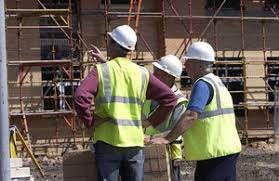Barratt Developments, the U.K.’s largest housebuilder, is facing a sharp decline in its operations, revealing a worrying fall in both profits and construction output. The company’s latest financial report for the year ending in June shows a sharp reduction in the number of homes built, a situation made worse by ongoing economic pressures including high interest rates and rising inflation.
Significant drop in construction and profits
Barratt Developments completed only 14,000 homes last year, a significant drop from the 17,000 units completed in the previous year. This drop in construction volume has led to a massive 75% drop in pre-tax profits, underlining the impact of current economic conditions on the housing market.

The company has indicated that the situation could get worse, forecasting a range of just 13,000 to 13,500 homes to be built next year. This anticipated drop is due to a sharp drop in construction volumes in the U.K. Housing is a key challenge for the sector, particularly in light of the new Labour government’s ambitious housing targets.
The impact of economic pressures
The main reason for the slowdown is the macroeconomic environment. High interest rates have discouraged potential home buyers, making mortgages more expensive and reducing demand for new homes. At the same time, inflation has pushed up construction costs, putting further pressure on the company’s profitability.
Barratt chief executive David Thomas has acknowledged these challenges, but remains optimistic about the company’s position. He believes that despite the current difficulties, Barratt is well placed to meet the underlying demand for new homes.
Government housing targets and reforms
The new Labour government has made increasing housing supply a central priority, promising to deliver 1.5 million extra homes across England over the next five years. Key to this plan are reforms to the planning system, which the government hopes will streamline processes and make more land available for development.
In response to the government’s effort to increase housing supply, Barratt has expressed support for the proposed reforms. Thomas has highlighted that changes to planning regulations can act as an important lever to boost homebuilding, spur economic growth and address the critical shortage of high-quality homes.
Challenges and future outlook
Despite the optimistic outlook regarding potential government reforms, Barratt’s recent results underscore the extent to which external factors, particularly mortgage rates, impact the company’s operations. Analysts have noted that Barratt’s financial figures reflect broader issues within the housing market, suggesting that significant easing of mortgage rates will be necessary to stimulate a meaningful improvement in housing activity.
Erin Chikri, an equity analyst at Hargreaves Lansdown, described the company’s latest financial results as “a painful read for investors.” The low volume of homes sold and the resulting fall in revenue have highlighted the difficulties facing the housing sector, even as the government seeks to address the underlying issues.
Cladding remediation and regulatory concerns
In addition to the challenges posed by the current economic climate, Barratt is also grappling with the ongoing fallout following the Grenfell Tower fire tragedy. The company has reported a substantial increase in funds allocated for cladding removal and remediation, with the estimated cost now standing at £628 million, up from £536 million last year.
This increased expenditure is part of Barratt’s wider efforts to address safety concerns and comply with regulatory requirements following the tragic fire, which has had a lasting impact on the UK’s approach to building safety.
Acquisitions and future prospects
Barratt is also in the process of acquiring fellow housebuilder Redrow, although the deal is still pending approval from the competition regulator. This potential acquisition could have a significant impact on Barratt’s future strategy and market position, particularly as the company faces current housing market challenges.
Overall, while Barratt Developments is committed to meeting demand and supporting housing supply, the company faces a complex set of challenges. The interplay of economic pressures, regulatory changes and ongoing safety concerns will shape its strategy and performance in the years ahead.